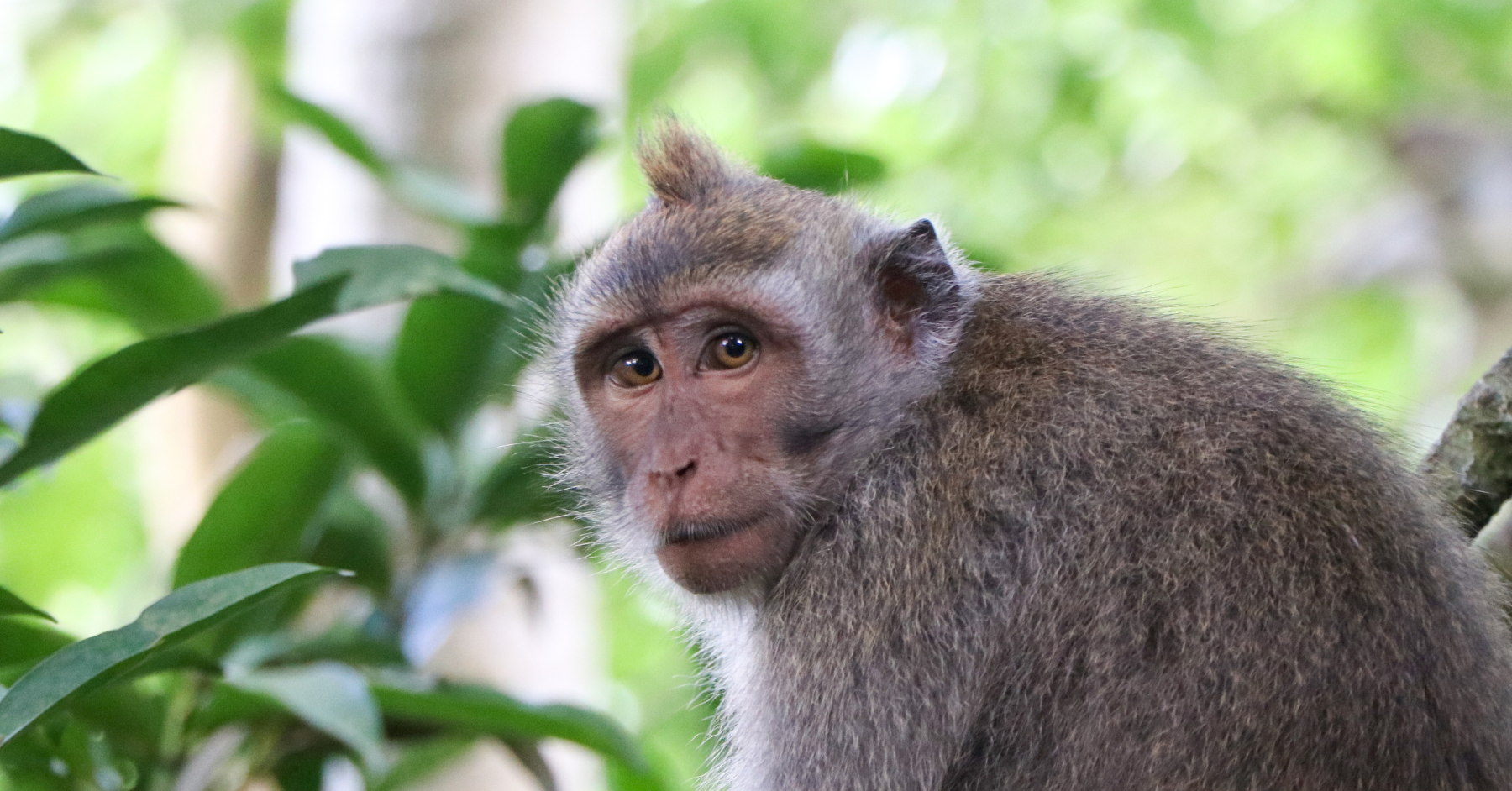
The Animal Research Industry is Endangering Entire Species
In the U.S. alone, it is estimated that the animal experimentation industry commodifies, exploits, and brutalizes over 111 million nonhuman animals each year. Included among the victims are huge numbers of nonhuman primates, represented most numerously by macaque monkeys.
Macaques – the most common nonhuman primates used in biomedical research – account for the majority of the over 113,000 nonhuman primates reported by U.S. laboratories in 2021. (The USDA has yet to post 2022 numbers.)
The U.S.’s institutionalized exploitation of macaques – along with similar use undertaken by other countries – has taken a tremendous toll on macaque populations worldwide: laboratory demand is a primary driver of the international primate trade, and the international primate trade is driving the decimation of wild, nonhuman primate populations. In fact, several macaque species – two representing choice experimental subjects in the U.S. – are facing devastation.
U.S. researchers are commodifying nonhuman primates out of existence.
23 species and 19 subspecies make up the macaque genus, Macaca, of which five are already listed as threatened or endangered under the Endangered Species Act (ESA). Of those that are not, at least two are in crisis:
- The long-tailed macaque (Macaca fascicularis): sold and trafficked to the U.S., the world’s largest importer of this species, for biomedical and toxicological experimentation.
- The pig-tailed macaque (Macaca nemestrina): bred in, sold to, and trafficked to the U.S., the leading importer of this species, for biomedical and behavioral experimentation.
Over the last 40 years (or three generations), the long-tailed macaque population is estimated to have declined by about 40% and the pig-tailed macaque population by at least 50%; simultaneously and oppositely, the experimentation industry’s demand for both long-tailed and pig-tailed macaques has increased.
Faced with the consequences of its operations, the U.S. experimentation industry wants to further increase its use of nonhuman primates.
Dwindling populations of nonhuman primates has resulted in challenges to meeting the U.S. experimentation industry’s demand for nonhuman primate experimental subjects. But, true to the interests of an industry predicated on reducing sentient life to objects for human profit – and implicated in illegal schemes involving the poaching of wild, nonhuman primates for sale to U.S. laboratories – there is a complete absence of concern for the extermination of entire, keystone, nonhuman species. Indeed, earlier this month, the U.S. National Academies of Science, Education, and Medicine – an animal research industry front group – released a report strongly advising that the U.S. find ways to increase its supply and use of nonhuman primates.
Rise for Animals has signed onto two petitions asking that long-tailed and pig-tailed macaques receive protection from the Endangered Species Act (ESA).
Already, both species are cited by the Convention on International Trade in Endangered Species and Wild Fauna and Flora (CITES) and are considered “endangered” by the International Union for Conservation Nature (IUCN), but they are not being meaningfully protected and their populations have continued to experience decimation.

It is the hope that ESA inclusion would engender more effective protections for long-tailed and pig-tailed macaques by, for example, requiring federal agencies to “ensure that actions they authorize, fund, or carry out are not likely to jeopardize the continued existence of any listed species….” Moreover – because the U.S. government (namely, the National Institutes of Health) is the world’s largest funder of nonhuman animal experimentation, and the U.S. is the world’s largest importer of long- and pig-tailed macaques – inclusion of macaques under the ESA has the potential to establish a hurdle to U.S. imports and, hence, experimental use.
We need to end nonhuman experimentation for good. While ESA protection is not enough to do so, it will afford further protections to long-tailed and pig-tailed macaques, two species commonly exploited in research.
While we fully support and applaud these efforts to increase legal protections for macaques, we believe that the answer to species decimation is far more fundamental than increased legal protections. Rather, it’s a shift in our collective view of nonhumans, and our collective demand that the use of nonhuman animals as means to human ends ceases.
Please act now. Urge the U.S. Fish and Wildlife Service to add long-tailed and pig-tailed macaque monkeys to the Endangered Species list, improving their protections under U.S. law.
Share on Facebook
Share on Twitter